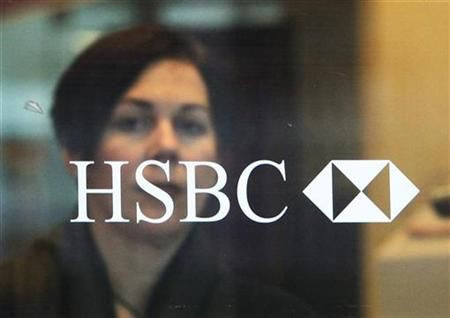HSBC 'Too Slow' To Reform After Money Laundering Allegations, Says Justice Dept. Monitor

HSBC has made only halting progress in its ongoing efforts to fall in line on compliance issues, according to a Department of Justice court document filed Wednesday. A year into a monitoring agreement stemming from charges of money laundering and business dealings with terrorist governments, “HSBC Group’s progress has been too slow,” the filing states.
The largest European bank by assets, U.K.-based HSBC has had trouble getting its far-flung global operations to meet the demands of the U.S. Justice Department, particularly when it comes to reforming corporate culture and instituting firm-wide compliance technology.
According to the DOJ summary, the bank’s American global banking operations in particular raised red flags. U.S. managers “demonstrated a deficient culture that had not fully accepted the role and legitimacy of the Internal Audit and control functions,” the report summary stated.
The regional head of HSBC’s American global banking arm will be reassigned and demoted from the executive committee over differences between senior managers and internal auditors. When internal bank auditors raised concerns over the U.S. arm’s “know your customer” program, senior managers displayed “combativeness, overblown complaints about factual inaccuracy, and a basic lack of cooperativeness,” the report said.
HSBC has recently faced renewed scrutiny after reports alleging the firm’s Swiss private bank in the past has helped stash cash for wealthy overseas customers, including individuals with ties to arms trafficking and dictatorships. HSBC has claimed that it is fully committed to reforming its practices, a process the bank says will last another three years to fully implement.
Overall, the report did contain some evidence of progress. It noted increased responsibility among senior executives and stronger written policies.
Even so, the document is likely to reignite debates over the merits of deferred prosecution agreements and other means of settling with financial institutions alleged law-breaking, which have extracted record settlements without holding individuals to account.
In the 2012 deferred prosecution agreement with the DOJ, HSBC paid fines totaling $1.9 billion and agreed to install an oversight monitor. After a prolonged search, the DOJ appointed Michael Cherkasky, a seasoned litigator known for his work in anti-money-laundering efforts. Cherkasky delivered the document, the first full-year report of his five-year appointment, in January.
© Copyright IBTimes 2025. All rights reserved.






















